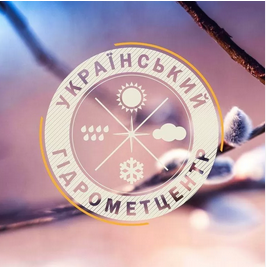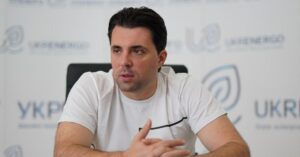
On Monday, September 2, in the south-eastern part of Ukraine, and at night and in Zhytomyr, Khmelnytsky, Vinnitsa and Odessa regions in some places small short-term rains, thunderstorms, reports Ukrhydrometcenter. In the rest of the territory without precipitation.
The wind is predominantly northeasterly, 5-10 m/s. In the eastern regions in the afternoon in some places gusts of 15-20 m/s.
The temperature at night 17-22°, in the western regions 13-18°, in the afternoon 27-32°.
In Kiev without precipitation, northeast wind, 5-10 m/s. The temperature at night about 20 °, in the daytime 28-30 °.
As reported by the Central Geophysical Observatory named after. Borys Sreznevsky, the highest temperature during the day on September 2 in Kiev was recorded in 2015 and amounted to 35.7 °, the lowest at night – 5.7 ° in 1940.
On Tuesday, September 3, in the southern part, in some places in the eastern and central regions short-term rains, thunderstorms. In the rest of the territory without precipitation.
Wind east, northeast, 7-12 m/s, in the eastern and central regions gusts of 15-20 m/s in some places.
The temperature at night is 15-20°, in western regions 12-17°. During the day 27-32°.
In Kiev without precipitation, wind east, northeast, 7-12 m/s. The temperature at night 17-19°, during the day about 30°.

Ukrainian cyclist Yegor Dementiev won silver in the individual 4000-meter pursuit in the C5 class, Suspilne. Sport” on Saturday.
Dementiev reportedly finished second in the qualifying round, behind Frenchman Dorian Foulon, who broke the world record in the qualifying round with a time of 4:13.934 minutes. In the race, Dementiev steadily held on to second, closing the gap before the finish, but was unable to beat Foulon.
Individual pursuit, 4000 m
1. Dorian Foulon (France) – 4:16.169 minutes
2. Yegor Dementiev (Ukraine) – 4:17.785
3. Eluan Gardon (USA) – 4:18.880
This is the 12th medal for Ukraine at the 2024 Paralympic Games, and the first on the cycling track.

The World Bank’s Board of Directors has approved a new $415 million systemic project in Ukraine, “Making Education Accessible and Resilient in the Face of Crisis in Ukraine” (LEARN), aimed at improving primary and secondary education in Ukraine, which will reach one million students, teachers, and school staff.
“It is crucial to mitigate the impact of war on children, especially those from the most vulnerable families, by minimizing disruptions to the learning process,” Bob Sohm, World Bank Regional Director for Eastern Europe, said in a release on Saturday night.
It is specified that the LEARN program provides for measures aimed at improving general security conditions in schools, providing free transportation for vulnerable students, teacher training, textbook procurement, and improving governance in the education sector. The project also aims to help implement a comprehensive education reform in grades 1-12 known as the New Ukrainian School (NUS), which meets EU standards, the WB said.
“The LEARN project will help thousands of Ukrainian students return to protected learning environments,” Finance Minister Sergii Marchenko said in the release.
It is specified that the project is being implemented using the financial instrument “Program-for-results” (PforR).
The Ministry of Finance notes that LEARN is aimed at improving the conditions for teaching and learning, which are implemented through subventions from the state budget to local budgets.
The WB notes that the initial funding for the LEARN program includes $235 million from the International Bank for Reconstruction and Development’s (IBRD) Assistance for Ukraine’s Necessary Credit Support (ADVANCE Ukraine) Trust Fund, $150 million from the International Development Association’s (IDA) Special Program for the Recovery of Ukraine and Moldova, and $30 million from the Ukraine Recovery, Rehabilitation, and Transformation Trust Fund (URTF). The program provides for results-based financing that can be scaled up as additional funds become available.
According to the release of the Ministry of Finance, the project agreement is expected to be signed in September 2024, and by the end of 2024, based on the achievement of pre-defined indicators, Ukraine will be able to receive $200 million to the general fund of the state budget.
The responsible executor of the PforR LEARN project in terms of supervision and coordination is the Ministry of Finance of Ukraine. At the same time, the Ministry of Education and Science of Ukraine has been designated as the lead implementing agency, which will be responsible for the implementation of the LEARN project, its monitoring and evaluation.

The number of crossings of Ukraine’s border in the last week of summer, from August 24 to 30, decreased by 3% to 715,000, but the flow of people entering the country before the start of the new school year even increased slightly, despite massive Russian missile and drone attacks and renewed power outages.
According to the State Border Guard Service’s Facebook post, the number of entry crossings increased to 371,000 from 367,000, while the number of exit crossings fell to 344,000 from 370,000.
The number of vehicles that crossed the checkpoints over the week increased to 140 thousand from 133 thousand a week earlier, and the flow of vehicles with humanitarian cargo increased to 620 from 605.
As for the distribution of traffic by day of the week, according to the border guards, traditionally, the outbound traffic is higher on Friday-Sunday, while the inbound traffic is higher from Saturday to Monday.
The State Border Guard Service notes that as of Sunday morning, the longest queues are observed at the checkpoints on the border with Hungary – from 20 cars at Dzvinkove to 50 at Kosyno, while on the traditionally busiest Polish border, there is a queue of 25 cars at the Ustyluh checkpoint alone.
In addition, 25 cars each are waiting to cross the border at the Uzhhorod and Maly Berezny checkpoints on the border with Slovakia.
The number of people crossing the border in the last week of summer this year is roughly equal to last year’s figures: 375 thousand people entered Ukraine and 327 thousand left during the same seven days, and the flow of cars was 141 thousand.
As reported, on May 10, 2022, the outflow of refugees from Ukraine, which began with the outbreak of war, was replaced by an influx that lasted until September 23, 2022 and amounted to 409 thousand people.
However, since the end of September, possibly under the influence of news about mobilization in Russia and “pseudo-referendums” in the occupied territories, and then massive shelling of energy infrastructure, the number of people leaving has been exceeding the number of people entering. It temporarily stopped in the second half of December and early January during the holidays, but then resumed again and reached a total of 223 thousand people from the end of September 2022 to the first anniversary of the full-scale war.
During the second year of the full-scale war, the number of border crossings to leave Ukraine, according to the State Border Guard Service, exceeded the number of crossings to enter by 25 thousand, while since the beginning of the third year, the number of crossings has increased by another 77 thousand.
As Deputy Economy Minister Serhiy Sobolev noted in early March last year, the return of every 100,000 Ukrainians home results in a 0.5% increase in GDP. The Ministry of Economy has included 1.5 million people in its macroeconomic forecast for this year, while the National Bank expects an outflow of 0.4 million, which is twice as much as in 2023.
According to updated UNHCR data, the number of Ukrainian refugees in Europe as of August 19 this year was estimated at 6.084 million, and 6.655 million in the world as a whole, which is 63 thousand and 75 thousand more than two months earlier.
In Ukraine itself, according to the latest UN data as of April this year, there were 3.548 million internally displaced persons (IDPs), which is 141 thousand less than at the beginning of the year.

The Netherlands is handing over 28 Bandvagn BvS 10 (Viking) two-link tracked all-terrain vehicles to Ukraine, Dutch Defense Minister Ruben Brekelmans said on Saturday.
“Ukraine desperately needs our help in the fight against the Russian aggressor. The Netherlands is donating 28 Viking tracked vehicles. The Marine Corps has trained Ukrainian soldiers to work with them,” the minister wrote in a post on the social network X.
“Our support for Ukraine continues to deter Russia,” Brekelmans emphasized.
The Bandvagn BvS 10 (Viking) is an articulated armored tracked Swedish-British amphibious armored personnel carrier manufactured by BAE Systems Hägglunds and in service with the marines of the Netherlands, the United Kingdom, Sweden, Austria, and France. Earlier, in 2023, Ukraine received 36 Dutch BvS 10s and 20 British Vikings as part of logistical assistance to repel Russian aggression.

A meeting of the supervisory board of NEC Ukrenergo, at which a vote is scheduled for the removal of the head of the company’s management board, Volodymyr Kudrytskyy, is scheduled for Monday, a source familiar with the situation said.
‘The meeting of the National Council is scheduled for Monday. Most likely, the withdrawal will take place. Given that the nabsoviet has six members instead of seven: three independents and three representatives of the state, and Roman Pionkowski rather supports the initiator of the withdrawal – the main shareholder represented by the Ministry of Energy’, – said the interlocutor of the agency “Interfax-Ukraine” on Saturday morning.
At the same time, he expressed hope that the public outcry, particularly in the energy community, which the possibility of Kudrytsky’s dismissal has caused, as well as the great support of his Western partners will help stop the process.
‘If it fails, I hope that it will at least be possible to put a professional acting and announce a full-fledged competition for the head of the board,’ the source added.
The company itself has not commented on the issue.
According to TG-channel Monopolist, for the position of the head of Ukrenergo are considered Dmytro Olefir, the head of the Board of Market Operator, who worked in Ukrenergo and was also a member of its Board from the state, Oleg Kozachuk, recently dismissed from the position of Khmelnytskyoblenergo, Oleksandr Gavva, the head of the Board of Market Operator, Artem Nekrasov, the head of the SE ‘Guaranteed Buyer’.
Kudrytskyy has already been publicly supported in his social networks by, among others, MP Andriy Zhupanin (Servant of the People), energy expert of the Ukrainian Institute of the Future Andrian Prokip, managing partner of the consulting company Imepower, which works, among other things, in the market of ‘green’ energy, and a member of the board of the European-Ukrainian Energy Agency Yuriy Kubrushko, head of the Bioenergy Association Georgiy Geletukha, as well as a number of other representatives of the energy industry.
As reported, Forbes Ukraine, citing its own sources, reported that Ukrainian President Volodymyr Zelensky at a meeting of the Supreme Commander-in-Chief’s Headquarters on Friday, 30 August, voiced a demand to Kudrytskyy to write a letter of resignation at his own request in the near future, but he refused. Now the decision on his resignation should be made by the company’s nabsoviet board. The reason for the resignation request is called incomplete protective structures around the system operator’s substations, which allegedly led to disruptions in electricity supplies after the combined massive shelling on 26 August.
The director of the Energy Research Centre, Oleksandr Kharchenko, said in a commentary to the publication that the accusations against Kudrytskyy were groundless, adding that Enerhoatom and Ukrhydroenerho were experiencing similar problems. He also pointed out that if the company’s naibsoviet board decides to dismiss the head of Ukrenerho, ‘the independence of supervisory boards in Ukrainian state-owned companies can be forgotten’.
‘Ukrenergo is a private joint-stock company, 100 per cent of whose shares are managed by the Ukrainian Energy Ministry.
‘Ukrenergo’ recognised the Russian attack on energy facilities on 26 August as the most large-scale attack since the beginning of the war. The Russian occupiers fired 127 missiles and 109 attack drones at Ukrainian territory, of which 102 missiles and 99 UAVs were shot down. As Oleksiy Kucherenko, the first deputy chairman of the Verkhovna Rada committee on energy and housing and utilities, commented on the consequences of the attack, Ukraine’s unified energy system has maintained its integrity despite tangible defeats of some energy facilities.
On 23 April 2024, the Ministry of Economy of Ukraine announced a competitive selection for the position of an independent member of the Ukrenergo SB, but it is still operating with one vacancy, although according to Ukrenergo’s charter, it should consist of seven members, including four independent members.
Almost a year ago, Ukrayinska Pravda published the text of a US letter to the Ukrainian authorities with a list of reforms that Kiev should undertake to continue receiving military support, in particular, to introduce additional members to the nabs of Ukrenergo and Naftogaz in the next three months (which was done for NAK).
Currently, Ukrenergo’s SB consists of Peder Andreasen, Daniel Dobbeny, Roman Pionkowski – independent members, Yuriy Tokarsky, Oleksandr Baranyuk, and Yuriy Boyko – representatives of the state. The decision to dismiss the head of the board is made by a majority vote. The market noted that despite the desire of the main shareholder to get Kudrytskyy’s resignation, he managed to avoid it several times, thanks to the support of Ukraine’s international partners, as well as half of the nabsovet (of the state representatives, he is supported by Yuriy Boyko).
In September 2022, the G7 ambassadors to Ukraine had already expressed concern about the government’s interference in the management of the state-owned Gas Transit System Operator of Ukraine LLC and NEC Ukrenergo.
Since the beginning of the full-scale war, the total amount of international assistance (loans and grants) attracted by Ukrenergo totalled EUR1.5bn.